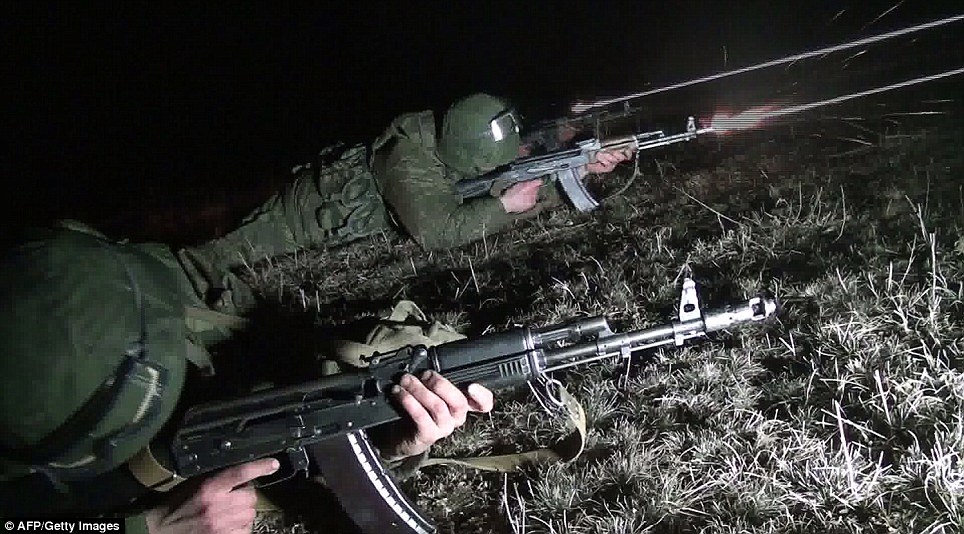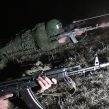
Russia’s Chiefs of the Military Academy of the General Staff, 2007–2015: What They Tell Us About Russian Military Art (Part Two)
Publication: Eurasia Daily Monitor Volume: 12 Issue: 100
By:

To read Part One, please click here.
Since 2007, the Military Academy of the General Staff of the Russian Armed Forces has had four different heads, with unique military backgrounds. Part One (see EDM, May 22) of this two-part series looked into the biographies of generals Aleksandr Belousov and Vladimir Yakovlev. Part Two will now examine the backgrounds of Andrei Tretyak and Sergei Makarov, as well as provide some conclusions on the four men’s legacies at the head of the Academy.
Andrei Vitlevich Tretyak (born March 19, 1959) become chief of the Military Academy of the General Staff in May 2012, and only served until February 2013. Tretyak, who had been appointed the chief of the Operations Directorate of the General Staff in 2010, was close to those opposed to the military reforms under then–defense minister Anatoly Serdyukov and chief of the general staff Nikolai Makarov; and he had already made his opposition public. In November 2011, President Dmitry Medvedev removed Tretyak from his position as chief of the Operations Directorate of the General Staff and dismissed him from active service. However, with the sacking of Serdyukov and Makarov in November 2012, Tretyak was appointed General-Lieutenant to run the Military Academy of the General Staff. His tenure was quite short, lasting less than a year. Tretyak had come in with a mandate to undue his predecessor General Yakovlev’s “reforms.” Tretyak’s article on “The Education of the Officer Elite” (Nezavisimoe Voennoe Obozrenie, December 7, 2012) was a manifesto of counter-reform: “With all the state and military reforms, the Academy has retained its image, occupying the leading place in the system of higher military education of the country.”
In February 2013, Colonel-General Sergei Makarov (born September 19, 1952) was appointed to head the General Staff’s Military Academy. Makarov was a tankist with extensive experience in the North Caucasus over the previous two decades. In 1998–2000, he was deputy commander of the 58th Army. In 2002–2005, he served as the deputy commander of forces of the North Caucasian Military District and as the commander of the Joint Group of troops (forces) to conduct counter-terrorism operations in the North Caucasus region. From March 1 to May 26, 2008, he served as chief of staff and 1st deputy commander of the North Caucasian Military District. On May 26, 2008, he was appointed commander of the North Caucasus Military District, where he served until January 11, 2010. In 2010, he was transferred to the reserves, ending his professional career. But in February 2013, he was brought back into service to be chief of the Academy.
Under his leadership, the Military Academy once again became a vital part of the General Staff, and engaged in the study of future war in all its characteristics. Unlike many former chiefs of the Academy, Makarov has looked hard at foreign military experience and sees future wars taking on quite different characteristics from the Soviet model of mass industrial war, what has been called fourth-generation warfare, or nuclear war, which has been referred to as fifth-generation warfare. Makarov’s view on the evolution of warfare embraces insights from the writings of Sun Tzu, which he considers still relevant in the 21st century. In August 2014, Makarov attended the 9th International Symposium devoted to “The Art of War” by Sun Tzu. In his discussion of the results of the symposium, he addressed the question of the culture of war and the culture of peace. He stated that modern wars should be avoided but, if fought, they should be fought in a manner involving little expenditure or losses:
One need not declare war to fight one, and one need not achieve the annihilation of the opposing force or suffer the costs of protracted war if one is willing to accept a frozen conflict as a viable political-military outcome. In this context, the point is to manage war with no illusions about absolute victory.
Makarov may have been inspired by Sun Tzu, but he was also part of a larger debate about the relationship of war and peace or the culture of war and the culture of peace in the 21st century. Professor Lev Gennadevich Larkin of the Lipetsk State Pedagogical University has written extensively on this topic and has concluded that the culture of war still dominates human society:
This conclusion suggests that the Military Academy of the General Staff will not be closing its doors any time soon. But the image of war has undergone a profound change among the Russian military’s top thinkers. That change exists in the tension between the Armageddon of thermonuclear war of the fifth generation, and the sixth generation, characterized by undeclared war with limited means and losses embracing precision-fires, information warfare and network-centric warfare. As the Academy is evidently now teaching its graduates, modern warfare excludes annihilation as an objective and foregoes the all-consuming attrition of industrial war in favor of conflict management and frozen conflicts as acceptable outcomes.




